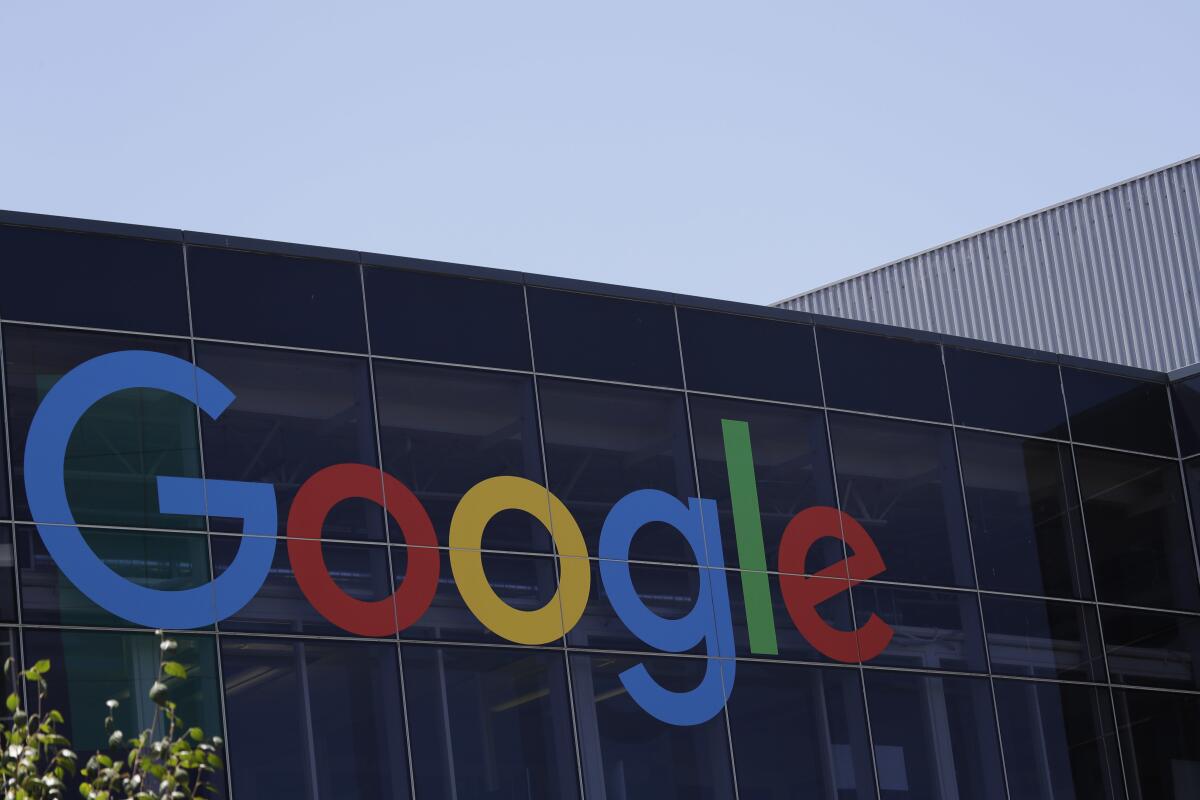Judge delays order in antitrust case requiring Google to open up its app store

- Share via
SAN FRANCISCO — A federal judge on Friday delayed an order requiring Google to open up its Android app store to more competition until an appeals court decides whether to block the shake-up because of legal questions surrounding a jury’s verdict that branded Google as an illegal monopolist.
The delay granted during a court hearing in San Francisco comes less than two weeks after U.S. District Judge James Donato issued a decision that would have forced Google to make sweeping changes to its Play Store for Android smartphones starting Nov. 1.
The mandated changes included a provision that would have required Google to make its library of more than 2 million Android apps available to any rivals that wanted access to the inventory and also distribute the alternative options in its own Play Store.
Google requested Donato’s order be stayed until the Ninth Circuit Court of Appeals could examine the handling of a monthlong trial that led to the December 2023 verdict, which framed the Play Store as an illegal monopoly that stifles innovation and drives up consumer prices.
In Friday’s hearing, Donato scoffed at the notion that Google could succeed in overturning the trial verdict. “The verdict in this case was amply supported by a mountain of evidence about Google’s anti-competitive conduct,” the judge said.
But he decided the Ninth Circuit should be given a chance to consider a postponement until a panel of judges can consider Google’s appeal of the 2023 trial focused on antitrust claims lodged by video game maker Epic Games.
Donato said he wouldn’t be surprised if the Ninth Circuit imposes an even longer delay on his ruling, “but that is for someone else to decide.”
In a statement, Google said it was pleased Donato hit the pause button while it tries to extend the delay even further.
“These remedies threaten Google Play’s ability to provide a safe and secure experience and we look forward to continuing to make our case to protect 100 million U.S. Android users, over 500,000 U.S. developers and thousands of partners who have benefited from our platforms,” Google said.
Epic pointed to Donato’s critical comments about the merits of Google’s appeal in a statement that described the stay as a “procedural step.”
It’s unclear how long the Ninth Circuit will take to decide on Google’s request for a permanent stay of Donato’s ruling while its appeal unfolds — a process that could take more than a year.
In 2021, the Ninth Circuit delayed a provision of another federal judge’s order mandating that Apple allow links to alternative payment systems with apps made for the iPhone as part of another antitrust case brought by Epic.
Although Apple avoided being labeled an illegal monopolist in a trial involving the iPhone app store, it unsuccessfully fought the provision requiring the company to allow alternative payment links within apps. But delaying that requirement preserved Apple’s exclusive control of a payment system that has generated commissions ranging from 15% to 30% on some e-commerce occurring within apps. Apple exhausted its avenue of appeals in the U.S. Supreme Court earlier this year.
Google also pockets billions of dollars annually from a similar commission system within its Play Store for Android phones — a setup that is allowed to continue as long as Google can prevent Donato’s ruling from taking effect.
In its arguments for delaying Donato’s order, Google said it wasn’t being given enough time to make the drastic changes it framed as “a Herculean task creating an unacceptable risk of safety and security failures within the Android ecosystem.” In its Friday statement, Epic blasted Google’s tactics as “fearmongering.”
Google also argued the shake-up would saddle it with unreasonable costs, a contention Donato also brushed aside during Friday’s hearing.
“I don’t want to be glib about it, but the expense that Google might incur appears to be a drop in the bucket compared to the profits it reaps annually from the Play Store,” Donato said.
Liedtke writes for the Associated Press.
More to Read
Inside the business of entertainment
The Wide Shot brings you news, analysis and insights on everything from streaming wars to production — and what it all means for the future.
You may occasionally receive promotional content from the Los Angeles Times.










